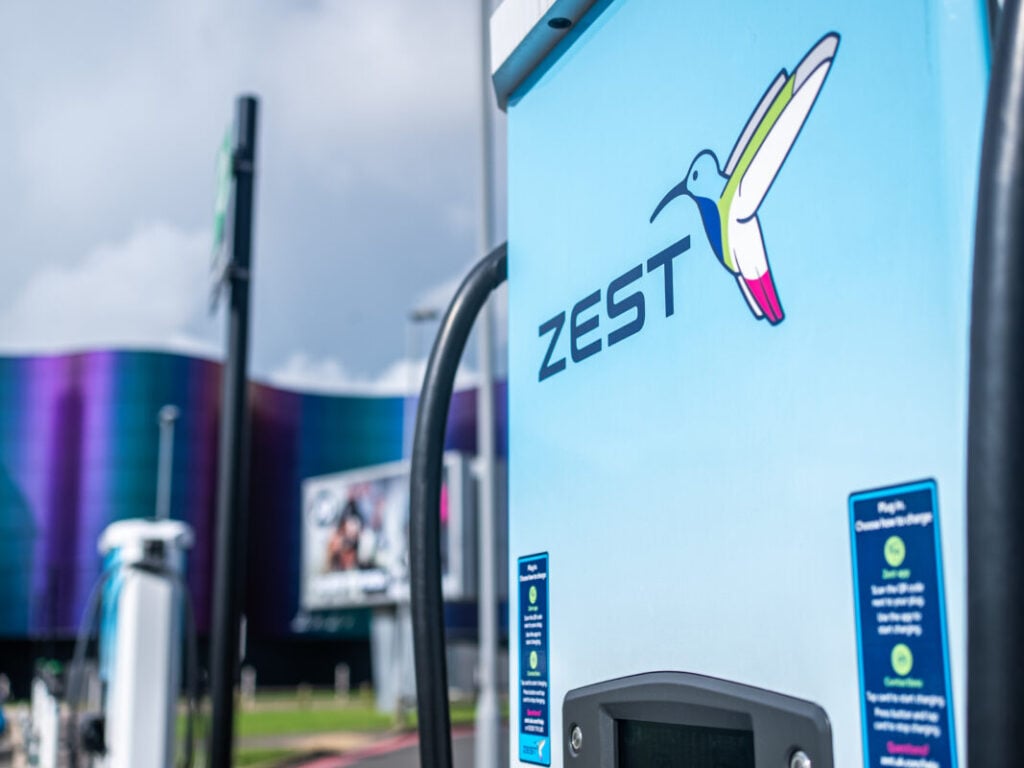Chargepoint operator (CPO) Zest has rolled out new EV chargers across the Midlands, while ECS has announced that it will add two electric trucks to its UK fleet.
Zest has partnered with Bromsgrove District Council and Redditch Borough Council to deploy a total of 120 new EV chargers across the two towns. The first of wave of these chargers have already been installed in the Aston Fields area of Bromsgrove and Astwood Bank in Redditch, with the remaining chargers due to be installed in a range of locations in both towns throughout this summer.
This deployment is part of a £2.1 million investment from Zest which will see the CPO supply, operate and maintain the chargers for the next 15 to 20 years, at zero cost to the local authorities involved.
Simon Parry, assistant director for environmental and housing property services at Redditch Borough Council, said the council was pleased to have partnered with Zest for the rollout, adding that it is a priority goal for the council to make the town as accessible to as many people as possible through expanded EV infrastructure. He added: “Bromsgrove and Redditch have so much to offer; being able to charge your car at a reasonable cost is another thing to add to the list.”
Robin Heap, CEO at Zest, agreed, noting: “Expanding charging networks ahead of demand is key to accelerating the transition to electric vehicles.”
This is not the first time Zest has worked alongside local authorities to boost EV charger rollout in suburban areas; in January of this year, Zest installed a public charging hub in Oscott, Birmingham, in collaboration with the local council, having partnered with Newport City Council for a 15-year concession agreement just one month prior.
ECS introduces electric trucks for first- and last-mile deliveries
Intermodal transport and supply chain logistics firm ECS has launched a trial of electric trucks for the first and last sections of deliveries.
Over a 16-month trial period two electric trucks will be used to transport cargo in the London region. ECS is currently focusing on rail transport for the bulk of its shipping time, but in the London area, road-based first- and last-mile deliveries make up a much larger segment of the supply chain, a key factor in the choice to conduct the electric truck trial in the London area.
The trial began three months ago, and according to ECS, the two electric trucks have already covered 14,775 kilometres in that time and transported 329 loads from the ports of P&O Tilbury and CLdN Purfleet. The range of the trucks was initially estimated at 200km, but ECS’ early test results have indicated that with an adapted driving style and a mapped route with constant traffic flow, the vehicles have frequently been able to travel over 250km without recharging.
ECS states that after the test period, it will analyse the gathered data to assess the feasibility of using electric trucks across its wider fleet. Sven Pieters, CEO of ECS, expressed significant confidence in the abilities of electric trucks, stating: “We are convinced that the capabilities of electric trucks lend themselves perfectly to short distances”.
He added that the company is keen to analyse a wide range of data on truck performance, noting: “We want to gather as much information as possible at this moment, so that we can make thoughtful decisions for a sustainable future.”






